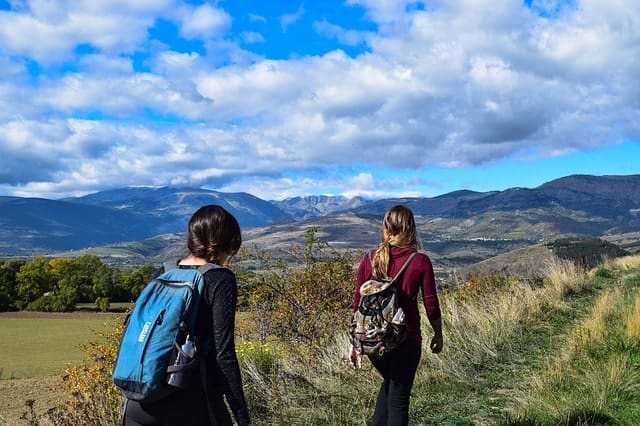Important Hiking Safety Tips To Protect You While On A Hike

How To Stay Safe When Out On A Hike

Getting out into the wild of nature is one important way for people to get away from the stress of their work routine and responsibilities. Taking a hike is a great way to do this whether it’s nearby or on a trail far away. Hiking can help you clear your mind and stay active while enjoying the amazing scenery. Hiking does come with risks, however. Hiking safety tips need to be at the top of your list when it comes to preparing for your hike so you can actually enjoy it. In this article, I will go over some of the things you need to do and to have to stay safe on your hike.
Taking the time to make sure you are prepared for any eventuality will allow you to enjoy the hike without worrying about any what-ifs that could happen while you are out.
Packing The Essentials
I know many hikers do not like to bring along items that they think they don’t need in order to keep their backpack light. Yet, there are some items you need to bring along even when hoping that you will never need to use them.
The most essential item you need to have is a first aid kit. You’ll need bandages, small scissors, tweezers and some anti-inflammatory creams.
After that, a strong knife like the one you can find on lamnia.com should also be in your bag. You never know when or what you will need to cut and a strong knife will come in handy in many situations.
You’ll also need some clothes or blankets to stay warm and dry. Since you don’t want to take up much space, pack some ultralight clothes that can be layered and that will keep you warm at night as well as the same type of blanket. And an extra pair of socks will be very useful if you find yourself cold at night as the ones you wore all day are likely sweaty and damp. Changing your socks often will help prevent blisters as well.
Make Your Hiking Plan Known
Before you set out on any hike, you should make sure people know where you’re going and when you expect to be back. In case you don’t arrive when you say you were supposed to, then people will know they need to go look for you. And they’ll need to know where to look. You should leave your itinerary with a friend or family member that details the area you plan to be.
Consult with a park ranger before you leave so they also know that there will be somebody in their area. They can also let you know of any dangerous spots that you should be aware of or avoid.
Have an Emergency Plan
Research the area where you plan to hike so you can understand what potential dangers you may face and then have a plan for what to do if you find yourself in trouble. Be aware of both the potential wildlife encounters and geographic challenges. Find out if there is cell phone service or not so you know what type of phone you need to bring. A satellite phone will usually work where there is no cell signal.
Enjoy the great outdoors with an invigorating hike, but just be sure that you take these safety precautions in advance.




